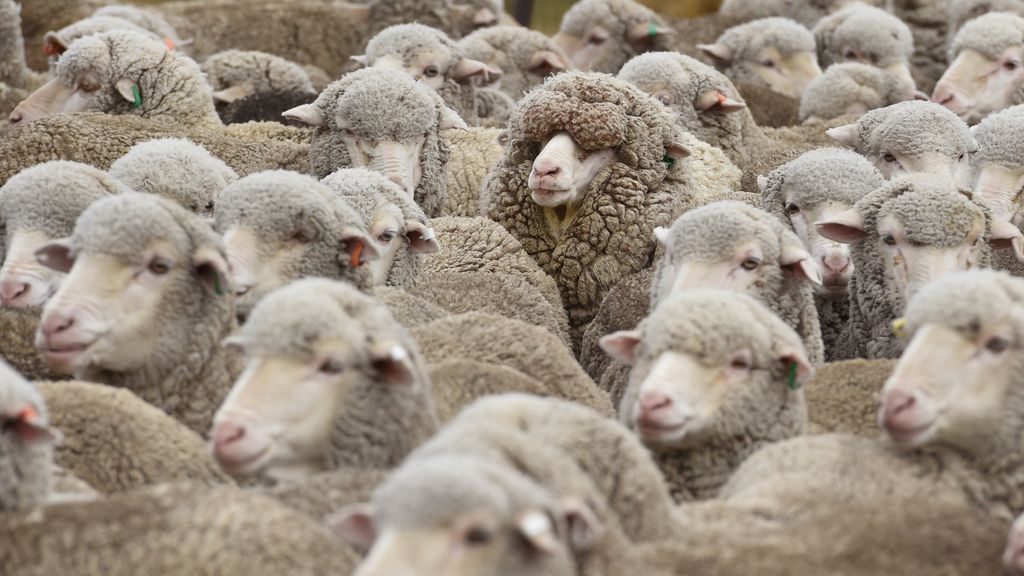
AFP
ONS News•
-
Mike Wijer
correspondent australia
-
Mike Wijer
correspondent australia
In New Zealand, the government wants farmers to pay a tax on the emissions of their livestock. The tax is expected to contribute to the goal of being climate neutral by 2050 and reducing methane emissions by 10% by 2030.
The sector is responsible for more than half of New Zealand’s emissions. This mainly concerns methane, a harmful greenhouse gas, which is released by the farts, burps and feces of livestock.
The agricultural sector is one of the last sectors in New Zealand to pay for emissions. The country has had an emissions trading system since 2008, but farmers were not obliged to participate in it until now.
The furious farmers
Farmers are outraged by the government’s proposal. “This plan is a punch in the stomach for farmers,” says Stu Muir (52). He runs a dairy farm in the Aka Aka hills in the Waikato region of New Zealand’s North Island.
“We’ve been trying for years to do the right thing for our country and the climate, but in a way that also benefits our community. That’s now being pushed aside,” he says.
Muir is a fifth generation farmer in this area. His ancestors came from Scotland to New Zealand in the early 19th century. Muir grew up on the farm, as do his four children now. “My children have been helping in the fields since they were young. They know exactly where their food comes from. It’s a natural life,” he says.
The largest exporter of dairy products
He’s not alone, there are over 50,000 farms across New Zealand. Out of a population of 5 million, there are more than 10 million cows and 26 million sheep. The sector accounts for more than half of New Zealand exports leading dairy exporter in the world.
But Muir fears he is the last professional farmer in the family. “This plan will put farmers out of business,” he said. Many farmers are hesitant about this. Lobby group Groundswell NZ says around 20% of farms will go bankrupt.
Since the government announced the plans, there has been a lot of opposition. A petition with more than 100,000 signatures was presented to the minister by tractor. Protesters took to the streets in tractors.
The debate became increasingly polarized as farmers, interest groups and the New Zealand government worked together. In the partnership Hi Waka Eke Noa the parties have been discussing since 2019 how to reduce emissions from the farming community. Eventually, a proposal was made and the farmers agreed to a tax on their emissions.
tax
The big difference with the current plan that Prime Minister Jacinda Ardern’s government has now submitted is that farmers wanted to influence the level of this tax. But instead, the government wants to appoint an independent party that determines the amount of the tax each year.
Emissions can be offset by planting trees. But there are many problems with this, says climatologist David Hall of Auckland University of Technology. “There’s a lot of focus on offset options in this plan, and not enough on biodiversity.”
Pines are not naturally New Zealand. But because they grow quickly, they are planted a lot to offset emissions. This could come at the expense of biodiversity, Hall says. “It becomes more lucrative to use agricultural land to plant pine forests. But it creates a monoculture that gives less space to our native animals and plants.”
While biodiversity is important in the fight against climate change. “We need a combined approach so that measures to combat climate change do not have a negative impact on biodiversity,” says Hall.
‘No acknowledgement’
This is also what concerns the dairy farmer Muir. He has invested heavily in allowing parts of his land to go wild to boost biodiversity. “I invested time and money into cleaning up the local river, and since then all the native fish and birds have returned. But in this plan, I don’t get any credit for it.”
Hall also sees this as a flaw in this government proposal. Although he stresses that the tax is necessary to reduce emissions, he pleads for greater understanding by farmers. “It’s very drastic for people, we have to take this into account and all contribute to reducing emissions,” he says.
The government’s proposal usually enjoys strong support in parliament. The final plan will be presented early next year. The tax will come into force from 2025.

“Devoted bacon guru. Award-winning explorer. Internet junkie. Web lover.”
 DodoFinance Breaking News Made For You!
DodoFinance Breaking News Made For You!
